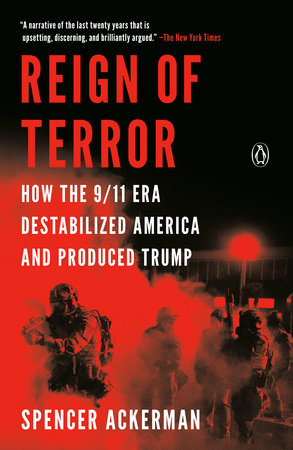A republic that wages unending war beyond its frontiers sets itself up for decline and fall. Its intractable military skirmishing is like the drip-drip-drip of water slowly eroding the sturdy foundations of an edifice before it collapses. Buffoons soon take their turns as mob rulers, coarsening and dividing a once-free society, before a barbarian horde tries to topple it.
Or so goes the “Roman narrative,” an old story of imperial decline that has instructed generations of politicians and political theorists seeking to stave off a similar fate. If you spend too much time fighting savagery, you become savage as well. “No nation could preserve its freedom in the midst of continual warfare,” warned James Madison in 1795. Added Barack Obama in 2013, in a statement that, in retrospect, seems prophetic: “A perpetual war—through drones or special forces or troop deployment—will prove self-defeating and alter our country in troubling ways.”
But there has long been both a minor and a major problem with the Roman narrative. The minor one is that no one ever seems to agree on when the free society went wayward. For millennia, observers have emphasized different causes and dates—which was easy to do since, as the 18th-century French political philosopher Montesquieu pointed out, from the beginning “Rome was in an eternal and always violent war” somewhere. Edward Gibbon, the most famous modern chronicler, opens his history with an admiring description of the Roman Empire as it embarked on its wars, with scenes from Augustus to the Antonines that read like a fanboy’s paean to military achievement. The pivot in his account comes only with the murder in 192 ce of Emperor Commodus, the narcissist who lacked “every sentiment of virtue and humanity” and was goaded into “unspeakable acts of cruelty” by a “servile crowd” that worshiped him. (He did not have red hair.)
But the larger problem with the Roman narrative is its complacent nostalgia for a time before the decline itself. Historical bickering about what went wrong and when presupposes that a lot—or enough—went right. Taking the virtues of the free society for granted, its way of life glorious until the intrusion of wartime vice, the Roman narrative, whether credulously or ideologically, implies that the problem was adventitious and occurred late. It becomes a matter of saving “the last best hope” from its “unwinding,” to quote the titles of two of George Packer’s recent books. But what if the sources of the cruelty and violence and putrefaction were of long standing? What if the crimes and pathologies of empire abroad and subjugation at home, belatedly fingered as the causes of collapse, had always prevented a republic from actually coming into being? What if the supposedly free society was unconscionably violent to its own people, and its military adventures far away were extensions or reflections of its unfreedoms nearby? The problem wasn’t a decline and fall, but a failure to rise in the first place.

